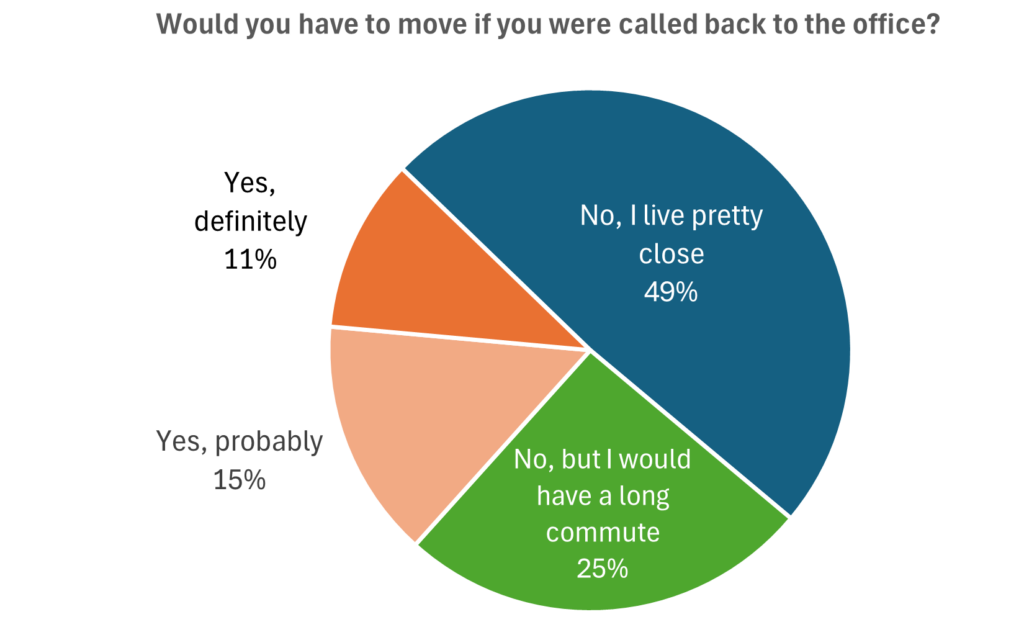In 2025, many U.S. homeowners may have to make the difficult decision to relocate or hunt for a new job as a new presidential administration will soon take office and more companies are reevaluating remote work regulations that allowed their workers to work from a distance. According to recent Bright MLS survey data, approximately 37% of people who work remotely at least occasionally would hunt for a new job if they were summoned back to the office full-time.
The struggle between work and home is being set up by travel time, according to a November nationwide poll of almost 1,600 householders. If called back to the office full-time, 25% of remote workers said they would “probably” or “definitely” have to relocate. Even though they wouldn’t have to relocate, another 26% claimed that their commute would be quite lengthy. More than 30% of people who think they would have to relocate or put up with a lengthy commute have been in their current residence for fewer than five years.
“There was a surge in homebuying in further-out locations when work shifted to home during the pandemic,” said Lisa Sturtevant, Chief Economist for Bright MLS. “As more employers end or significantly scale back remote work options, many are facing a decision about where to live versus where they work. It is likely that we will see an increase in demand for housing near job centers and transportation networks. In more far-flung markets, where demand soared during the pandemic, market conditions likely will be weaker as more workers are pulled back into the office.”

Job vs. Home: Age Factors, Commute Times & More
If forced to return to the office full-time, older employees are more likely to quit. Of those who responded to the poll, 43% of remote workers over 50 stated that if requested to come back to the office, they would hunt for a new position. This is in contrast to 34% of workers under 40 and 32% of people in their 40s.
The survey found that if a West Coast homeowner’s employment called them back to the office 100% of the time, they would most likely have to decide whether to move. In California, Oregon, and Washington, 35% of remote workers said they would have to relocate or put up with a lengthy commute if their company called them back to the office.
Employees in Texas and the New York metropolitan area warn they may encounter significant difficulties if or when they are summoned back to work. In the Middle Atlantic region (New York, New Jersey, and Pennsylvania), some 25% of remote workers stated that if they had to go back to the office, they would have to relocate or face a lengthy commute. That option would also be available to a comparable percentage of West South Central workers, including those in Texas.
Many people who work remotely today have strong feelings about not returning to the office. Therefore, if they were no longer able to work from home, almost half of homeowners who do so would have to reconsider their housing decisions.
To read the full report, including more data, charts, and methodology, click here.








